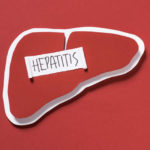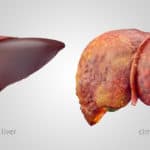Highly Effective Against HCV Genotype 1
R7128 is Safe, Effective in Short-Term for Patients With Hepatitis C Virus Genotype 1: Presented at EASL
By Emma Hitt, PhD
www.docguide.com
MILAN, Italy — April 29, 2008 — R7128, a potent inhibitor of hepatitis C virus (HCV) polymerase, appears effective and well tolerated at week 4 after initiation of treatment in combination with pegylated interferon alfa-2a (PEG-INF)/ribavirin, according to interim findings of a randomised trial of patients with genotype 1 HCV, researchers reported here at the 43rd Annual Meeting of the European Association for the Study of the Liver (EASL).
John McHutchison, MD, Associate Director, Duke Clinical Research Institute, Durham, North Carolina, described how the study sought to evaluate the efficacy and safety of R7128 at a dose of 500 mg BID (n = 20) and 1500 mg BID (n = 20), compared with placebo (n = 10) at 4 weeks; each arm also received PEG-INF/ribavirin. Patient characteristics were similar among study arms.
R7128 demonstrated a dose-dependent effect on efficacy parameters. Patients in the placebo group had a 2 log10 reduction in HCV RNA, compared with a 3 log10 reduction of in the 500-mg BID arm and a 5 log10 reduction in the 1500-mg BID arm. Rapid viral response was achieved in 10%, 30%, and 95% of patients in the placebo arm, the 500-mg BID, and the 1500-mg BID R7128 arms, respectively. alanine aminotransferase normalisation was achieved in 60%, 80%, and 70% of the 3 arms, respectively.
R7128 was generally well tolerated, with no apparent serious adverse events associated with R7128. The most common mild adverse events with the 1500-mg BID dose included fatigue (40% vs 20% in placebo), chills (35% vs 20% in placebo), and headache (65% vs 40% in placebo). No evidence of additional haematologic adverse events with R7128 was noted. In addition, amylase, bilirubin, blood urea nitrogen, and creatinine measurements were comparable at week 4 among treatment arms, with no evidence of renal toxicity.
Dose reductions and discontinuations were similar among treatment arms. One patient receiving R7128 1500 mg BID discontinued all treatment due to anorexia, diarrhea, and weight loss on study day 24.
“We observed a significant antiviral effect of R7128 in combination with PEG-INF [plus ribavirin] at week 4,” Dr. McHutchison concluded. “Approximately 85% of patients receiving R7128 achieved undetectable HCV RNA by week 4.”
According to Dr. McHutchison, two additional cohorts will be enrolled in the current 4-week triple combination study: a 1000-mg BID arm in treatment-naive patients with genotype 1 HCV and a 1500-mg BID arm in treatment-experienced patients with genotype 2 or 3 HCV. Both arms will also receive PEG-INF/ribavirin. An international phase 2b study is also underway to evaluate R7128 in triple combination for up to 12 weeks.
Funding for this study was provided by Roche.
[Presentation title: Potent Antiviral Activity of the HCV Nucleoside Polymerase Inhibitor R7128 With PEG-IFN and Ribavirin: Interim Results of R7128 500mg BID for 28 Days. Abstract 66]







